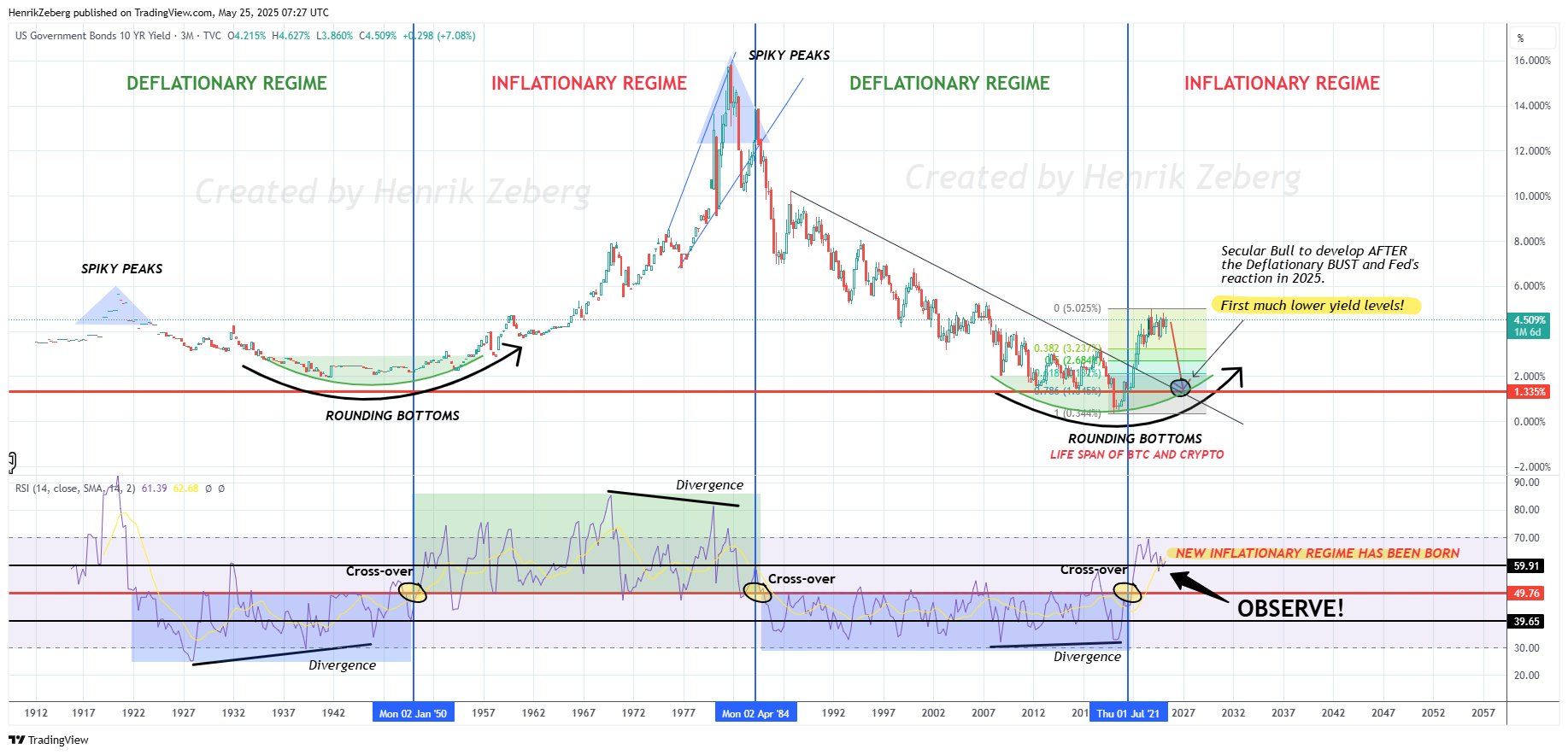A famous economist has declared the beginning of a new long-term inflation regime. This could be the most important change in the past 30 years. This structural transformation could have a profound impact on the world economy and financial markets.
In particular, BTC has been advantageous during periods of rising inflation. This is because Bitcoin's scarcity and speculative appeal increase demand.
Rising Inflation, Triggering BTC Bull Market?
Henrik Zeberg, chief macro economist at crypto analysis firm SwissBlock, recently shared a 100-year perspective on the U.S. government's 10-year Treasury bond yield. His chart classifies historical economic stages into inflation and deflation regimes.
This emphasizes the "rounding bottom" pattern of bond yields as a harbinger of rising inflation. This has already appeared.
"This does not mean immediate inflation (quite the opposite). However, this means that the economic and financial world will be completely different in the next 10 years compared to the past 30 years," Zeberg wrote.

Zeberg's analysis suggests a potential deflationary collapse in 2025 before a continued rise in yields. This will trigger a strong policy response from the Federal Reserve. This turning point will trigger a new long-term bull market.
Meanwhile, crypto analyst Michael van de Poppe emphasized that a collapsing bond market could force central banks to print more money. This could ultimately lead to a debt bubble collapse and subsequent deflationary period. In a recent X post, he presented a strategy to navigate through this.
"What is the way out of this situation? Invest in risk assets to maximize the coming years: cryptocurrencies, altcoins, Bitcoin," he said.
He subsequently recommended transitioning profits to safe assets like Bitcoin (as a store of value) and cash before the expected market collapse. And suggested rotating back to risk assets during recovery. Van de Poppe described this cyclical strategy as "probably the best plan" to navigate the upcoming economic turmoil.
As the world economy prepares for a potential inflation regime, Bitcoin's role as a price appreciation defense mechanism continues to attract attention. Jeff Kendrick, head of digital asset research at Standard Chartered, also emphasized this growing trend.
Importantly, inflation prospects have already begun to impact financial markets, especially Bitcoin. The largest cryptocurrency recently broke through $110,900, setting a new all-time high.
Ryan Lee, senior analyst at Bitget Research, explained this upward trend is attributed to multiple factors, including institutional adoption, increased regulatory clarity, and supply shortage after the halving.
"Macro conditions are playing a role. Expectations of rate cuts and persistent inflation are enhancing Bitcoin's appeal, with many seeing $113,000 as a realistic short-term target by June 2025," Lee told BeInCrypto.
However, he warned that Bitcoin's sharp rise often occurs before a correction, mentioning potential risks such as a strong U.S. dollar or geopolitical tensions.







